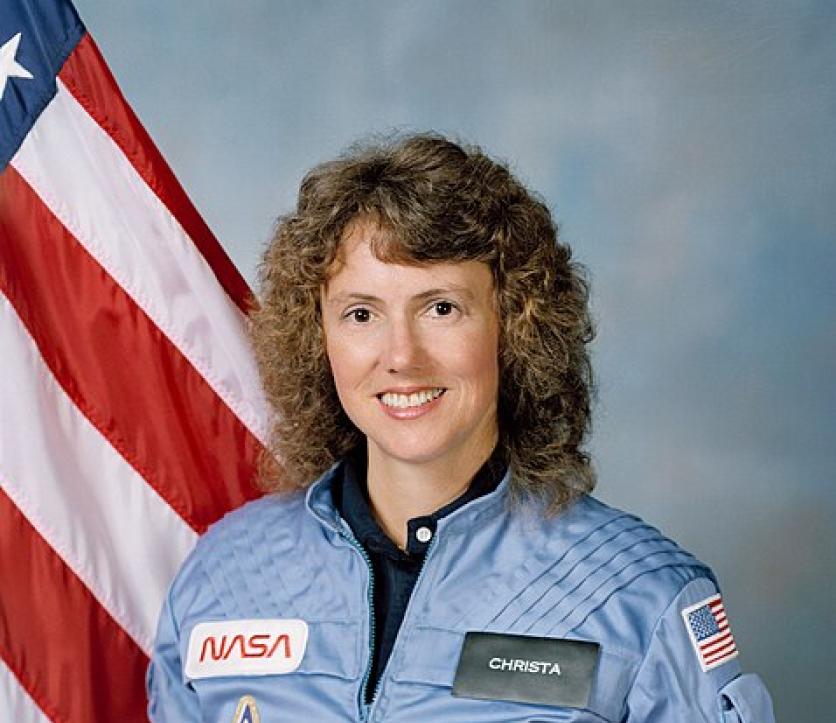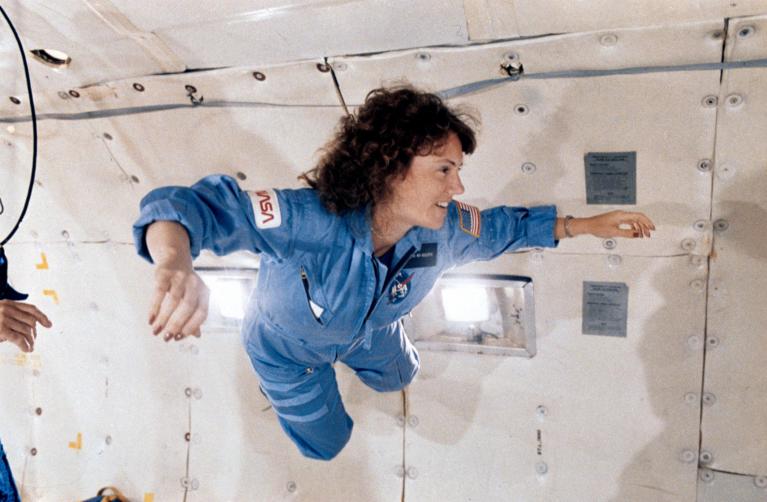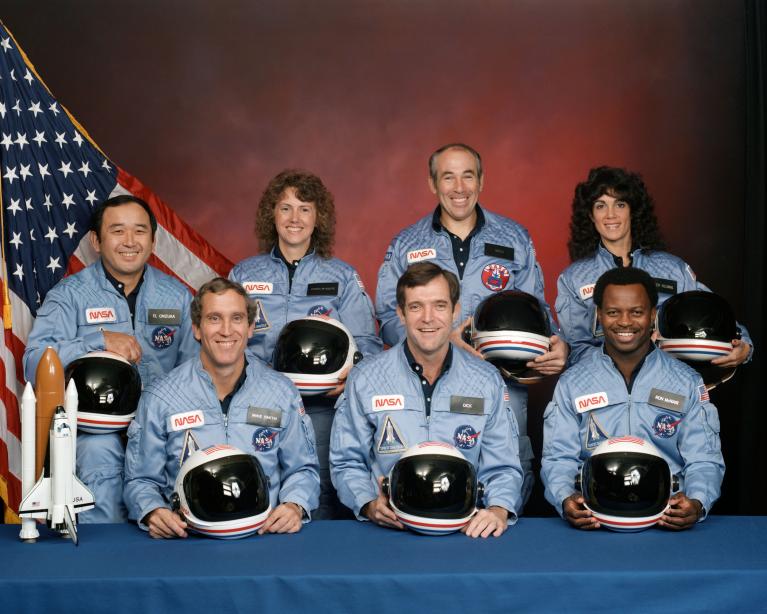Teacher and Astronaut on space shuttle Challenger
By Katie Woods, Digital Public Historian
History teacher Christa McAuliffe won the Teacher-In-Space program competition to become the first citizen passenger to go to space. Believing that “space is for everyone,” she hoped her participation would help demystify and humanize the space program.
Imagine me teaching from space, all over the world, touching so many people’s lives – that’s a teacher’s dream...Imagine a history teacher making history!”
Born in Boston, Sharon Christa Corrigan grew up in Framingham. The eldest of five, Christa helped take care of her siblings and was active in the Girl Scouts. In 1961, Christa heard President Kennedy’s call to land a man on the moon, beginning her lifelong fascination with space.
Christa attended Framingham State College, the first public teacher’s school in the country. After graduation, she married her high school sweetheart Steve McAuliffe and joined him in Washington DC. Christa taught high school fulltime and obtained a master’s degree in education supervision and administration from Bowie State College, an HBCU (Historically Black College and University). She also had the couple’s first child, Scott, in 1976.
The McAuliffe family soon returned to New England to settle in Concord, New Hampshire. Christa had a second child, Caroline, in 1979. She taught classes in US History, Law, and Economics at Concord High School. One of these classes was called “The American Woman,” in which McAuliffe framed US history through women’s perspectives. She gained respect for her teaching skills and ability to connect with students. Known as the “Queen of Field Trips,” McAuliffe created opportunities for students to see how classroom lessons connected to their lives.
In 1984, President Reagan declared the first US citizen in space would be a teacher. McAuliffe couldn’t wait to apply. In her application, she proposed documenting her experience of the training, flight, and return through a journal.
I cannot join the space program and restart my life as an astronaut, but this opportunity to connect my abilities as an educator with my interests in history and space is a unique opportunity to fulfill my early fantasies.”
After winning the New Hampshire contest, McAuliffe traveled to Washington DC in June 1985 for additional interviews, along with 114 other semifinalists. She was selected as one of 10 finalists, and then spent two weeks at NASA in Houston for additional psychological and physical tests. On July 19, 1985, Vice President George HW Bush announced Christa McAuliffe would be the first teacher in space, riding aboard the shuttle Challenger.
The American public fell in love with McAuliffe, whose down-to-earth and generous spirit touched many. Amid this new-found attention, McAuliffe began intensive training. She also worked on the lessons she was going to teach from space, joking that no teacher had prepared more for two lessons before.
When it came time for the launch of Challenger on January 22, 1986, weather postponed the launch. After five more delays, NASA committed to a launch on January 28, despite cold temperatures at the launch site in Cape Canaveral, Florida. A little more than a minute after takeoff, an explosion occurred from a leak in the rocket boosters. All seven passengers of the Challenger, including McAuliffe, died in the tragedy.
Christa McAuliffe is remembered locally, in Framingham and Concord, New Hampshire, nationally, and internationally. Many schools, libraries, and learning centers bear her name. Her mantra, “I touch the future. I teach.” continues to inspire educators today.
Additional Resources
“Christa McAuliffe’s Lost Lessons.” NASA. Accessed October 2023.
Junge, Daniel and Steven Leckart, directors. Challenger: The Final Flight. Docuseries on Netflix. 2020.
Bibliography
“Challenger Disaster.” Britannica. Last modified October 16, 2023.
“Christa Corrigan McAuliffe Collection.” Framingham State University, Henry Whittemore Library Archives and Special Collections. Accessed November 2023.
Corrigan, Grace George. A Journal for Christa: Christa McAuliffe, Teacher in Space. Lincoln: University of Nebraska Press, 1993. Accessed November 2023.
Holher, Robert. I Touch the Future: The Story of Christa McAuliffe. New York: Random House, 1986. Accessed November 2023.
Sotile, Renee, and Godges, Mary Jo. Christa McAuliffe: Reach for the Stars. West Hollywood, CA: Traipsing Thru Films, 2007.


